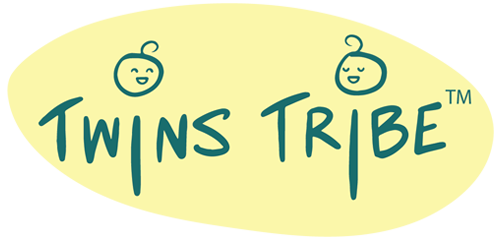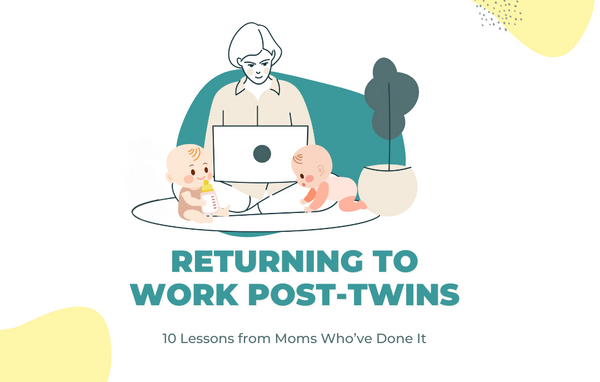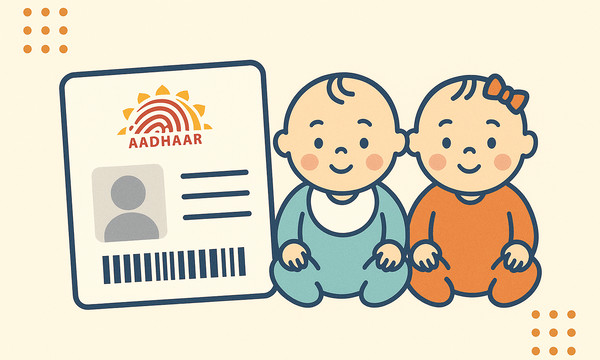
People often find twins fascinating due to their shared journey. For parents of twins, comparisons from family, friends, teachers—and even ourselves—are almost inevitable. “Who walked first?” “She’s the quieter one, right?” “He’s the more outgoing twin.”
But here’s the truth: twins are individuals, each with their own personality, strengths, weaknesses, interests, and pace of development. While often unintentional and seemingly harmless, these comparisons can affect their sense of identity and mental health, and sow the seeds of insecurity, rivalry, and self-doubt in young, impressionable minds.
In This Article
Let’s talk about why comparisons should be discouraged and how we can nurture each child as an individual.
Why We Tend to Compare Twins
Convenience: Parents and teachers often find it convenient to benchmark, especially when evaluating milestones. Sometimes we even use comparison to motivate performance, saying things like “Do it quickly—your sibling has already done it.”
Curiosity: Society is naturally curious about twins, and this often leads to casual comparisons, such as “Oh, he’s so active while the other one is lazy.”
Unconscious Bias: Without realizing it, we may favour one twin over the other based on behaviour or temperament.
Effects of Comparison
Unhealthy Competition: Comparing twins in milestones, sports, academics, or appearance can create rivalry. The less-favoured twin may develop resentment, while the favoured one may feel pressure to maintain their status. Neither outcome is healthy for their relationship or self-esteem.
Loss of Confidence and Individual Identity: Constant comparison can chip away at their confidence and blur their personal identities. When they’re always defined in relation to each other, it becomes harder to discover and celebrate their individuality.
Barrier to Natural Development: Comparing milestones like walking, crawling, or talking can cause undue stress for both parents and children. Let development happen naturally—each child has their own timeline.
Reinforces Labels: Labels like “the smart one” or “the naughty one” tend to stick. They influence how children see themselves and how others treat them, often lasting well into adulthood.
How to Discourage Comparison Between Twins
Celebrate Their Milestones or Strengths Separately: For example, if one twin starts walking, instead of saying, “Your sibling walked earlier,” say, “You’re doing a great job! Let me help you with walking too.”
Encourage Individual Interests: Support them in pursuing their own hobbies and passions. They might not enjoy the same things—and that’s perfectly okay. Help them explore and embrace their differences.
Avoid Labelling: Labels can box them into roles and discourage exploration. Try not to say things like “You’re the faster one” or “She’s better at drawing.” Even positive comparisons can cause pressure or resentment. Instead, use affirming and neutral language like, “You’re both doing great in your own ways.”
Give Individual Attention: Spend time with each child separately when possible.
For instance, my daughter sleeps late, so once my son falls asleep, I spend time understanding her concerns before helping her settle down. I also remind both my children that Mumma is equally important to both, and one must wait patiently while I attend to the other.
Encourage Them to Make Their Own Choices: Let each child choose their own path and set personal goals, rather than trying to match their sibling. This shifts the focus from competition to self-growth and resilience.
How to Gently Discourage Others from Comparing Your Twins
Here are some practical and respectful ways to help others (family, friends, teachers—even strangers) avoid making comparisons:
Lead by Example: Avoid making comparisons yourself—even playfully. When others see you celebrating your twins as individuals, they’re more likely to do the same.
Use Neutral, Redirecting Language: When someone says, “Who’s the smarter one?” or “She’s clearly more confident,” gently redirect with:
“They’re both smart in different ways—it’s amazing to see how they learn so differently.”
“Actually, they both surprise me every day in their own style!”
Educate Kindly: If a relative or friend frequently compares them, have a private and compassionate conversation - “I know it’s easy to compare them since they’re twins, but we’re trying to raise them to feel secure in their own strengths.”
Use Humor: A light-hearted remark can get the message across without sounding too serious:
“If I got a rupee every time someone asked who’s the bossier one, I’d be a millionaire!”
“We’re still figuring out who’s who—check back in 10 years!”
By gently steering conversations away from comparisons, you help create a safe and empowering environment for your twins—and encourage others to see them as individuals.
Final Thoughts
Twins are born into a uniquely close relationship—one that can be a lifelong source of support, friendship, and love. For that bond to flourish, each twin must feel seen, heard, and appreciated for who they are.
Discouraging comparison doesn’t mean ignoring their shared experiences—it means valuing their differences just as much as their similarities.
They may have shared a womb, but they deserve the freedom to grow into their own skin.
Daily Affirmations I’ve Taught My Twins
To build their confidence, values, and a sense of gratitude, I’ve introduced these simple affirmations in our daily routine:
Thank you, God, for everything.
I am unique.
We are a team.
We share love.
I believe in myself.
I am kind.
I am brave.
I am capable.
I am proud of myself.
I trust my decisions.

















1 comment
Very nice blog…beautifully expressed. Helpful to twin parents
❤️❤️